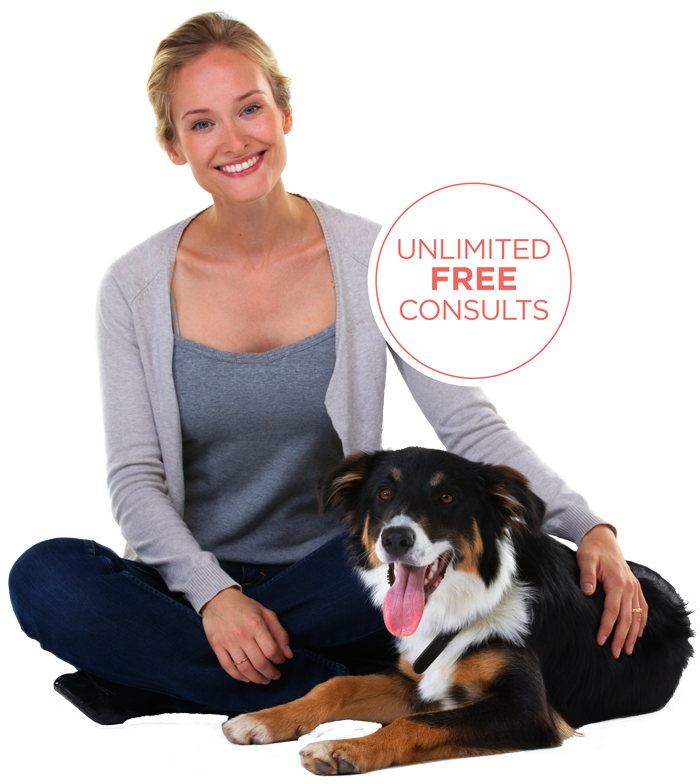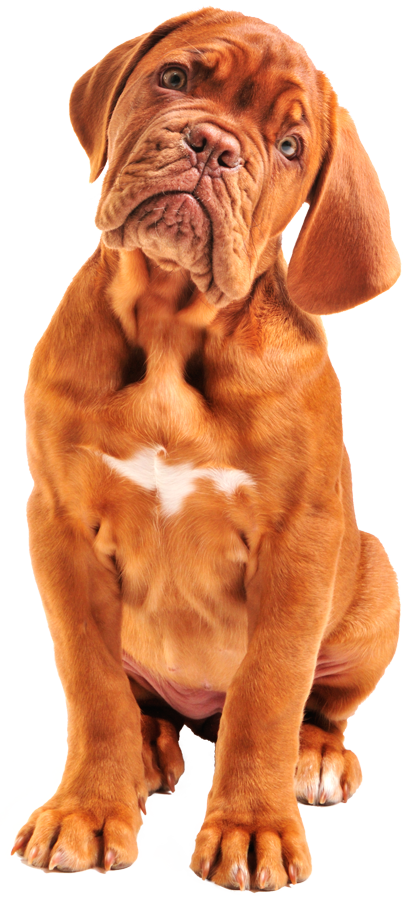
Dedicated Medical Care for your family pets
Surgical care, medical diagnostics and emergency response care.
Dedicated Medical Care
for family pets
Surgical care, medical diagnostics and emergency response care.

Friendly, compassionate medical care
Our clinics have excellent purpose-built facilities combined with state of the art technology:
- Fully-equipped surgical theatres
- Hospital ward
- Ultrasound
- Digital radiography
- Blood testing laboratory equipment
Our in-house diagnostic capabilities allow for rapid assessment of medical conditions and ensures we provide the right treatment for your pet at the right time.
From routine surgeries, dental extractions, through to complex operations for serious conditions or emergency procedures our team is dedicated to improving the health and welfare of your pet.
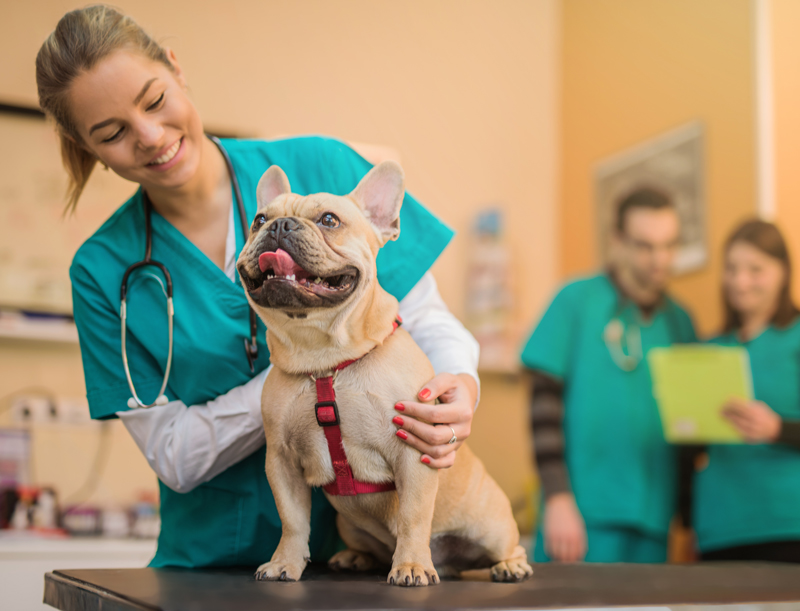
In-House Diagnostics
The equipment at our Fur Life Vet Clinics is regularly updated to provide the latest in diagnostic capabilities.
Our staff are provided with on-going training to keep up-to-date with advancements in veterinary knowledge and care.
Ultrasound
Ultrasound machines can be used to further investigate conditions involving the internal organs. These specialist machines are commonly used in pregnancy diagnosis and monitoring, and in investigating diseases of the urinary tract (such as bladder stones, tumours, prostate disease, and kidney disease). Ultrasound machines are very versatile and can be used to diagnose and monitor an array of conditions, including heart and lung disease, liver disease, and neoplasia.
Digital Radiology
The latest technology for diagnosis and treatment of animals.
High quality digital x-ray machines are used regularly, to provide valuable information on conditions affecting the bones, joints, and internal organs of our patients. By using digital imaging, we are able to quickly view high quality images, as well as easily distribute them electronically to any specialist or referral clinic.
Endoscope
Our endoscope allows us to insert a small camera through the mouth and into the stomach, to remove some objects that may be stuck in the stomach or the throat. Often, this means surgery can be avoided. The endoscope can also be used to examine ears, the nose, or throat.
ECG
Accurate diagnosis of heart arrthymias.
ECG machines are available to monitor the electrical activity and rhythm of the heart, which can be invaluable when assessing heart disease.
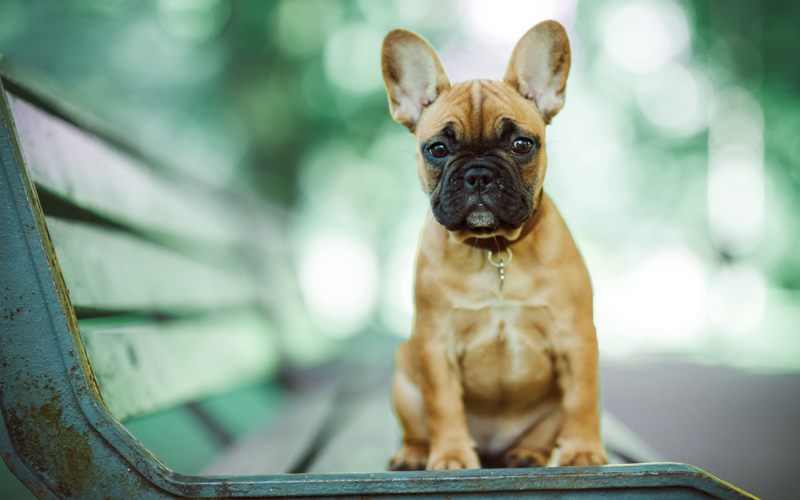
Cytology
Our vets are experienced in using cytology examination of tissue cells to accurately diagnose many diseases.
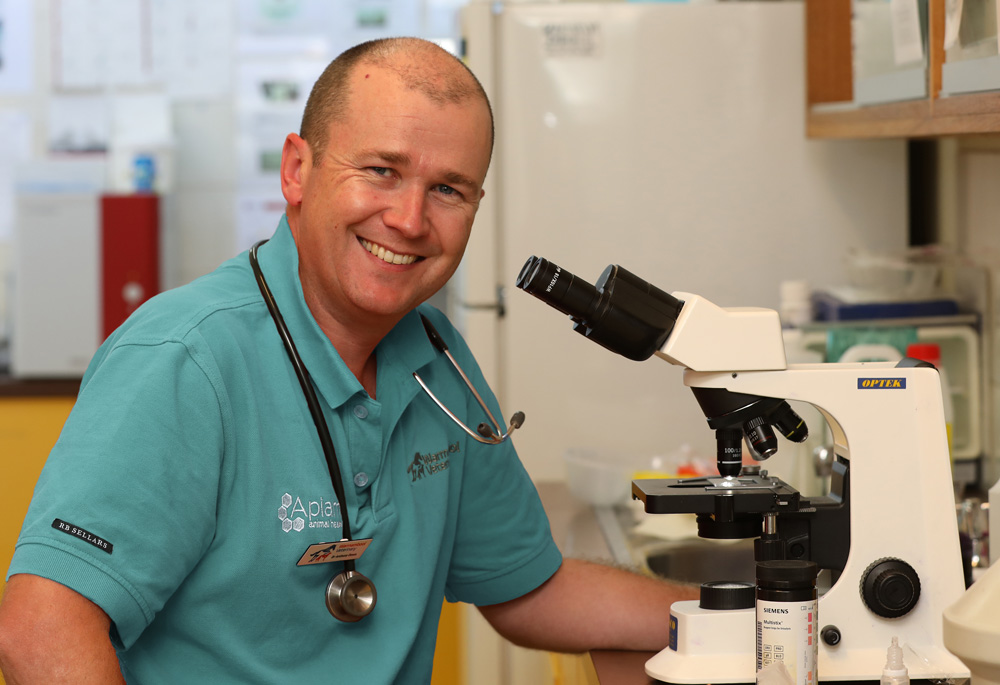
This involves taking a small sample of tissue, and examining the cells under a microscope at high magnification.
Cytology is used to assess many types of skin disease, as well as in investigating:
- Tumours
- Infections
- Urinary disease
- Ear infections
- Parasitic infections
In-House Laboratory
Rapid and reliable in-house blood testing
Our clinics possess a range of diagnostic equipment, which is used to conduct a variety of tests within the clinic providing you with a rapid and accurate diagnosis.
Blood Tests
Our clinics can conduct bloods tests used in the diagnosis of:
- Anaemia
- Blood disorders
- Inflammatory conditions
- Blood clotting disorders
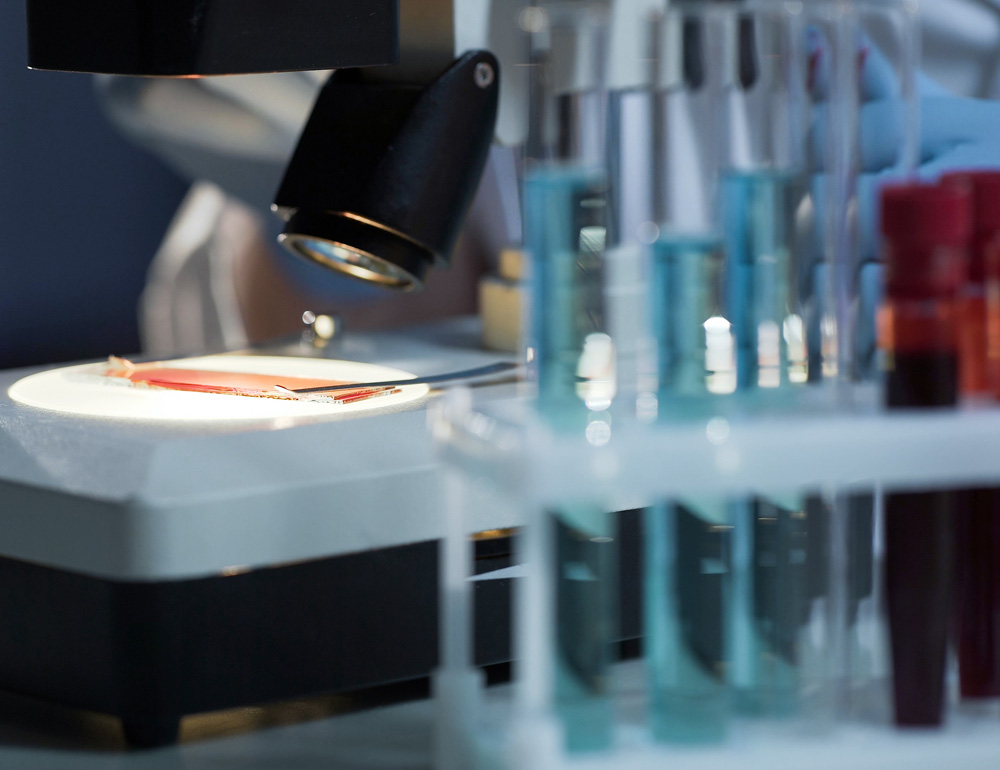
Biochemistry Tests
We also have the ability to run more advanced biochemistry tests in-house and tests used to diagnose diseases such as:
- Pancreatitis,
- Kidney disease
- Diabetes
- Hormonal issues
- Feline immunodeficiency virus
- Canine parvovirus
- Heartworm disease.
Reproduction
For canine reproduction our clinics run Progesterone tests with results returned same day.
Surgery
When surgery is the right or only option.
No one – neither pet nor human – likes to go under the knife. But sometimes, surgery is the right (or even only) option. If your pet needs surgery, it’s important you understand exactly what will happen during the procedure, but also what you need to do before, during and after surgery to help your precious pet make a smooth recovery.
Anaesthesia
Completing procedures under a general anaesthetic allows your vet to treat your animal safely, calmly and most importantly, pain-free. As a full anaesthetic carries some risk, your vet will have carefully weighed up the various pros and cons before presenting you with this option. After all, they want the very best for your treasured pet, just as you do.
Before Surgery
One
Discuss with your vet any:
- Queries you have about your pet’s procedure
- Concerns about your pet’s current or previous illness, particularly how that could affect the anaesthetic or surgery
- Additional procedures while your pet is anaesthetised, ie nail clipping or other grooming
Two
Do any requested preliminary blood tests (your vet may request this to get more information about your pet’s health status before surgery)
Three
Stick to any fasting instructions given by your vet prior to any procedure (sedation, general anaesthetic or surgery). Generally, this will be from 8pm the night before surgery
Four
Prepare a quiet, confined environment for your pet when they come home
During Surgery
Pre-medication
Before anything else is done, your vet will thoroughly check your furry friend is fit and healthy for surgery. If so, they will give them medication designed to calm and sedate them before the full anaesthetic is given. It’s the safest option.
General Anaesthetic
This part of the procedure begins shaving your pet’s forearm and/surgical area. It’s done two reasons:
- The vet can clearly see your pet’s vein
- Cleaning the area reduces the chances of infection
Your vet will then administer anaesthetic injection and your best mate will drift off to dreamland. The surgery can then begin.
During Surgery
Your pet will be given continuous medication throughout surgery to maintain anaesthesia. This might be done through a tube placed into their windpipe so it’s possible they’ll develop a slight cough after surgery due to irritation. It should settle over 48 hours.
Rest assured they will be monitored throughout the procedure to ensure the anaesthetic is proceeding safely.
After Surgery
Once the surgery is done, your precious one will be placed in a warm bed in a quiet area to recover. If they required skin sutures, the vet or nurse will let you know and give you some information about how to care for them. At this time, they’ll also share details about post-operative care and schedule an important check-up revisit.
Medication
It’s likely your pet is going to need some pain relief after surgery. If so, your vet might prescribe non-steroidal anti-inflammatory drugs (NSAIDs). These medications work to both relieve pain and decrease inflammation.
As with all medications, side effects can occur. The most common side effects of NSAIDs:
- Mild softening of your pet’s stools
- Loss of appetite
- Vomiting
- Diarrhoea
- Bleeding into the digestive tract (not as common)
- Other problems can occur but they are rare.
If you suspect your pet is having problems with a medication, STOP the medication and CONTACT your vet.
Home Care
Once you get your furry loved one home, there’s a few things you can do to help them recover:
- Keep them in a safe, comfortable & clean environment
- Don’t let them lick or scratch their wound (you can get an Elizabethan collar from the vest to help with this)
- Monitor the wound site – a little redness, swelling & even a small amount of discharge is to be expected
- Give all medications as prescribed by your vet
- Attend all scheduled revisits
- Call your vet if you have any concerns
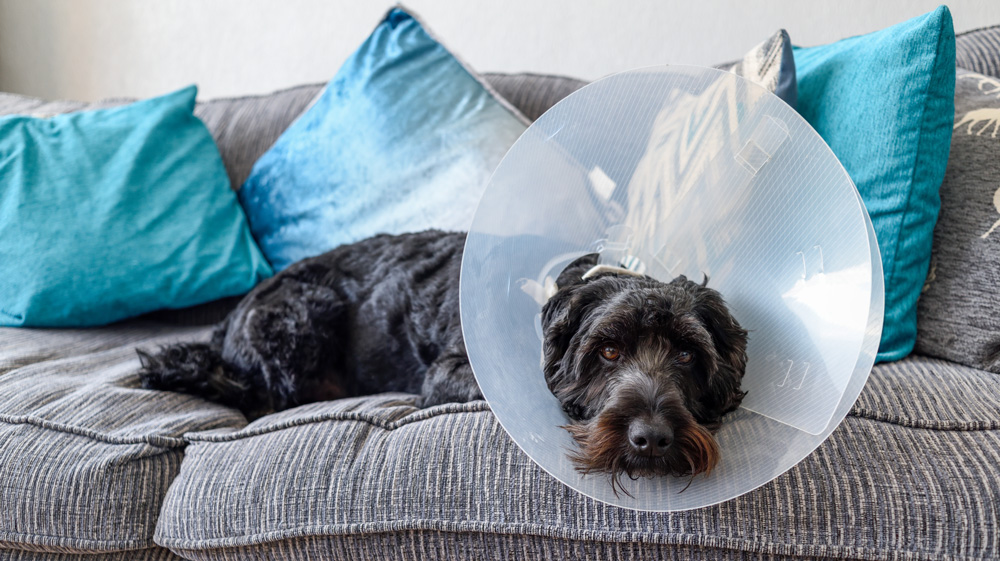
The equipment at our Fur Life Vet Clinics is regularly updated to provide the latest in diagnostic capabilities. Our staff are provided with on-going training to keep up-to-date with advancements in veterinary knowledge and care. State of the art Diagnostics. The latest technology for diagnosis and treatment of animals. Our endoscope allows us to insert a small camera through the mouth and into the stomach, to remove some objects that may be stuck in the stomach or the throat. Often, this means surgery can be avoided. The endoscope can also be used to examine ears, the nose, or throat. Accurate diagnosis of heart arrthymias.Diagnostics

Ultrasound
Ultrasound machines can be used to further investigate conditions involving the internal organs. These specialist machines are commonly used in pregnancy diagnosis and monitoring, and in investigating diseases of the urinary tract (such as bladder stones, tumours, prostate disease, and kidney disease). Ultrasound machines are very versatile and can be used to diagnose and monitor an array of conditions, including heart and lung disease, liver disease, and neoplasia.Digital Radiology
High quality digital x-ray machines are used regularly, to provide valuable information on conditions affecting the bones, joints, and internal organs of our patients. By using digital imaging, we are able to quickly view high quality images, as well as easily distribute them electronically to any specialist or referral clinic.Endoscope
ECG
ECG machines are available to monitor the electrical activity and rhythm of the heart, which can be invaluable when assessing heart disease.
Our vets are experienced in using cytology examination of tissue cells to accurately diagnose many diseases.
This involves taking a small sample of tissue, and examining the cells under a microscope at high magnification.
Cytology is used to assess many types of skin disease, as well as in investigating:
- Tumours
- Infections
- Urinary disease
- Ear infections
- Parasitic infections

Rapid and reliable in-house blood testing
Our clinics possess a range of diagnostic equipment, which is used to conduct a variety of tests within the clinic providing you with a rapid and accurate diagnosis.
Blood Tests
Our clinics can conduct bloods tests used in the diagnosis of:
- Anaemia
- Blood disorders
- Inflammatory conditions
- Blood clotting disorders
Biochemistry Tests
We also have the ability to run more advanced biochemistry tests in-house and tests used to diagnose diseases such as:
- Pancreatitis,
- Kidney disease
- Diabetes
- Hormonal issues
- Feline immunodeficiency virus
- Canine parvovirus
- Heartworm disease.

Reproduction
For canine reproduction our clinics run Progesterone tests with results returned same day.
When surgery is the right or only option.
No one - neither pet nor human - likes to go under the knife. But sometimes, surgery is the right (or even only) option. If your pet needs surgery, it’s important you understand exactly what will happen during the procedure, but also what you need to do before, during and after surgery to help your precious pet make a smooth recovery.
Anaesthesia
Completing procedures under a general anaesthetic allows your vet to treat your animal safely, calmly and most importantly, pain-free. As a full anaesthetic carries some risk, your vet will have carefully weighed up the various pros and cons before presenting you with this option. After all, they want the very best for your treasured pet, just as you do.
Before Surgery
One
Discuss with your vet any:
- Queries you have about your pet’s procedure
- Concerns about your pet’s current or previous illness, particularly how that could affect the anaesthetic or surgery
- Additional procedures while your pet is anaesthetised, ie nail clipping or other grooming

Two
Do any requested preliminary blood tests (your vet may request this to get more information about your pet’s health status before surgery)
Three
Stick to any fasting instructions given by your vet prior to any procedure (sedation, general anaesthetic or surgery). Generally, this will be from 8pm the night before surgery
Four
Prepare a quiet, confined environment for your pet when they come home
During Surgery
Pre-medication
Before anything else is done, your vet will thoroughly check your furry friend is fit and healthy for surgery. If so, they will give them medication designed to calm and sedate them before the full anaesthetic is given. It’s the safest option.
General Anaesethetic
This part of the procedure begins shaving your pet’s forearm and/surgical area. It’s done two reasons:
- The vet can clearly see your pet’s vein
- Cleaning the area reduces the chances of infection
Your vet will then administer anaesthetic injection and your best mate will drift off to dreamland. The surgery can then begin.
During Surgery
Your pet will be given continuous medication throughout surgery to maintain anaesthesia. This might be done through a tube placed into their windpipe so it’s possible they’ll develop a slight cough after surgery due to irritation. It should settle over 48 hours.
Rest assured they will be monitored throughout the procedure to ensure the anaesthetic is proceeding safely.

After Surgery
Once the surgery is done, your precious one will be placed in a warm bed in a quiet area to recover. If they required skin sutures, the vet or nurse will let you know and give you some information about how to care for them. At this time, they’ll also share details about post-operative care and schedule an important check-up revisit.
Medication
It’s likely your pet is going to need some pain relief after surgery. If so, your vet might prescribe non-steroidal anti-inflammatory drugs (NSAIDs). These medications work to both relieve pain and decrease inflammation.
As with all medications, side effects can occur. The most common side effects of NSAIDs:
- Mild softening of your pet’s stools
- Loss of appetite
- Vomiting
- Diarrhoea
- Bleeding into the digestive tract (not as common)
- Other problems can occur but they are rare.
If you suspect your pet is having problems with a medication, STOP the medication and CONTACT your vet.
Home Care
Once you get your furry loved one home, there’s a few things you can do to help them recover:
- Keep them in a safe, comfortable & clean environment
- Don’t let them lick or scratch their wound (you can get an Elizabethan collar from the vest to help with this)
- Monitor the wound site - a little redness, swelling & even a small amount of discharge is to be expected
- Give all medications as prescribed by your vet
- Attend all scheduled revisits
- Call your vet if you have any concerns

Your Local Fur Life Vet
Warrnambool Veterinary
Warrnambool 03 5559 0222
Port Fairy 03 5568 6222
Koroit 03 5559 0260
Nullawarre 03 5559 0270
Follow us on Facebook
Keep up-to-date with our latest services, offers and events. And dont forget to subscribe to our super cool eNewsletter too!


